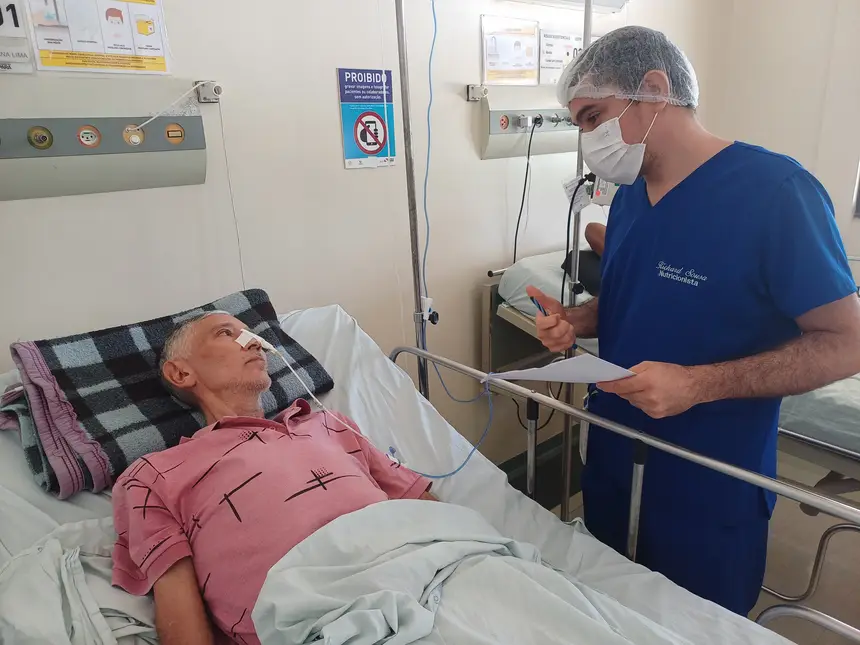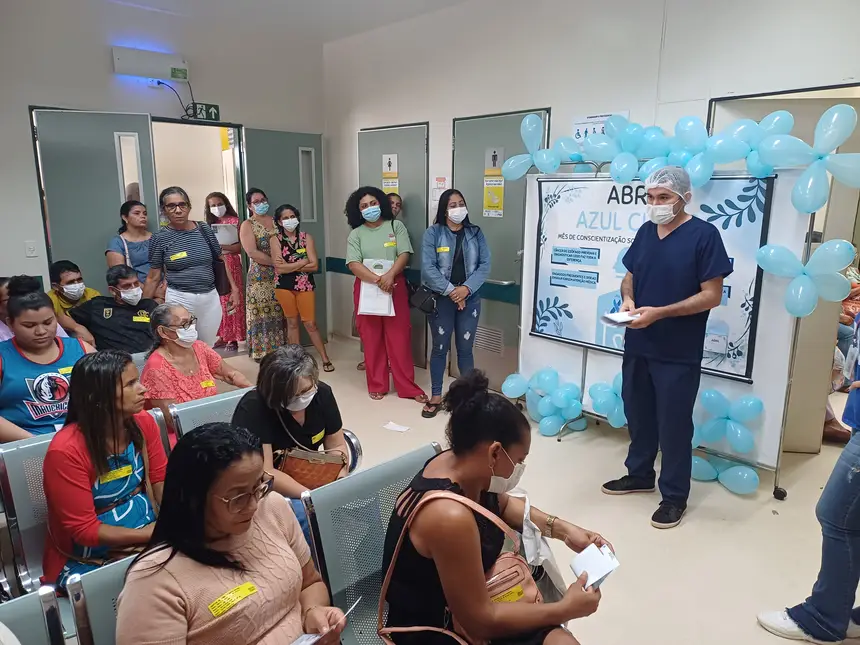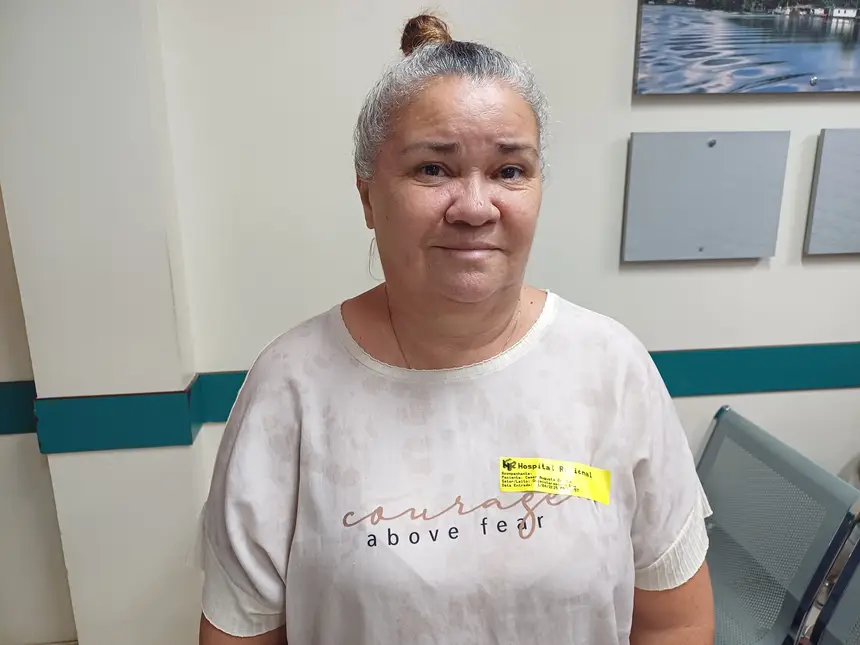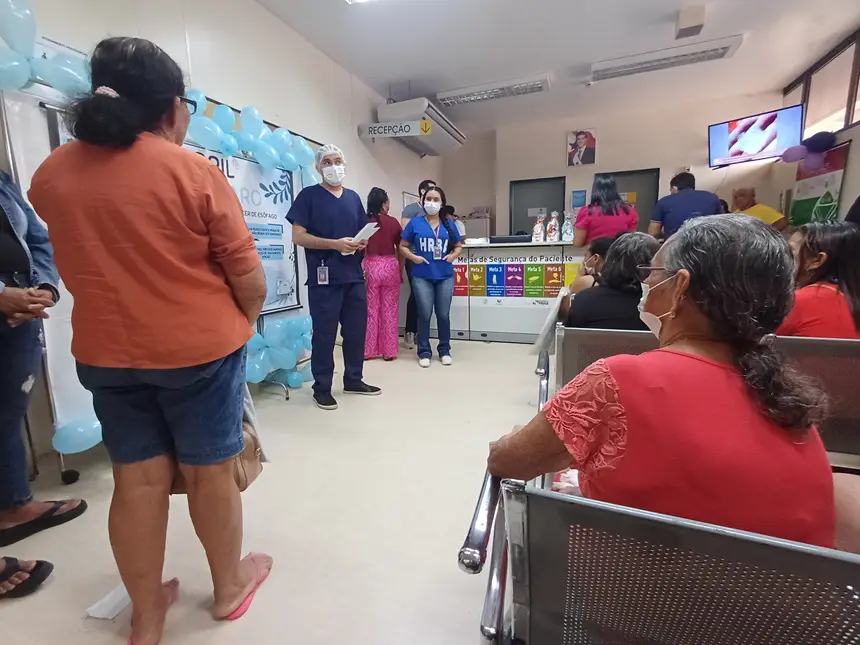Regional Hospital of Santarém provides guidance on prevention and combat of esophageal cancer
With actions from the Light Blue April campaign, professionals inform patients and companions about important care and dietary habits

Since August of last year, Manoel Rodrigues da Silva Marques, 61, has been a patient at the Dr. Waldemar Penna Regional Hospital of Lower Amazon (HRBA), in Santarém, in western Pará. Recently, he was hospitalized at the unit and received essential nutritional guidance for the continuation of his treatment at home. "Thank God, everything is going well. I am managing to eat. I will follow the guidance properly and everything will be fine," said the farmer, originally from Itaituba.
The evaluation and guidance of nutritionists are routine practices for all oncology patients treated at HRBA, a reference in medium and high complexity care for a population of 1.4 million inhabitants from 29 municipalities in the interior of the state. This April, the hospital's oncology team intensified its actions in combating and preventing esophageal cancer.
As part of the Light Blue April campaign, which aims to raise awareness about the disease, HRBA professionals held lectures in the chemotherapy outpatient clinic to alert patients and companions about essential dietary habits for maintaining health.
"Our intention with this action is to raise awareness not only among patients but also to encourage them to share this information with family and friends. Every month, we promote programs in the sector, as our hospital is a reference in oncology. The prevention of esophageal cancer is directly related to healthy habits, such as a balanced diet, regular exercise, and preventive exams. After all, it is a cancer that is difficult to diagnose, which reinforces the importance of maintaining a routine of health care," highlighted nurse Gisele Diniz.

esophageal cancer – According to the Ministry of Health, esophageal cancer — a muscular tube that connects the throat to the stomach — ranks sixth in frequency among men and 15th among women in Brazil, excluding non-melanoma skin cancer. Globally, it is the eighth most common, with the male incidence being about twice that of females. The prevalence of the disease has been increasing in recent years due to the rise in cases of obesity and gastroesophageal reflux disease.
For this reason, dietary care is crucial for both the treatment and prevention of the disease. "It is essential to prioritize foods with properties that strengthen our body, such as vegetables, leafy greens, fruits, seeds, and greens, in addition to high-quality carbohydrates and proteins. Whenever possible, we should include foods from the regional culture, in adequate quantities, and associate them with physical activities to maintain body balance and a healthy weight. It is also important to avoid foods high in calories, glucose, cholesterol, preservatives, and additives, such as canned and processed foods, as well as products with excess salt and sugar. These precautions are essential to prevent other diseases, such as cardiovascular diseases, diabetes, hypertension, digestive problems, and obesity, which can favor the emergence of cancer," advised nutritionist Richard Sousa.

Mrs. Francisca Coelho, 60, was accompanying her husband in treatment at HRBA and participated in the action. She approved the guidance provided by the professionals. "I found it very interesting because I believe that prevention saves lives. Many people do not have access to this information and end up being diagnosed late. Awareness is very important," she stated.
"We greatly value the health of our patients. Therefore, in addition to medical treatment, we want HRBA to be a true partner, guiding and informing the best practices for the prevention and combat of diseases. These lectures are essential and are part of our commitment to providing excellent care," concluded Matheus Coutinho, the hospital's general director.
Service: The Lower Amazon Hospital provides 100% referenced service, attending to the demand originating from the State Regulation Center. The unit belongs to the Government of Pará, being managed by the Social Institute Mais Saúde, in partnership with the State Department of Public Health (Sespa), and is located at Avenida Sérgio Henn, No. 1100, Diamantino neighborhood, in Santarém.











